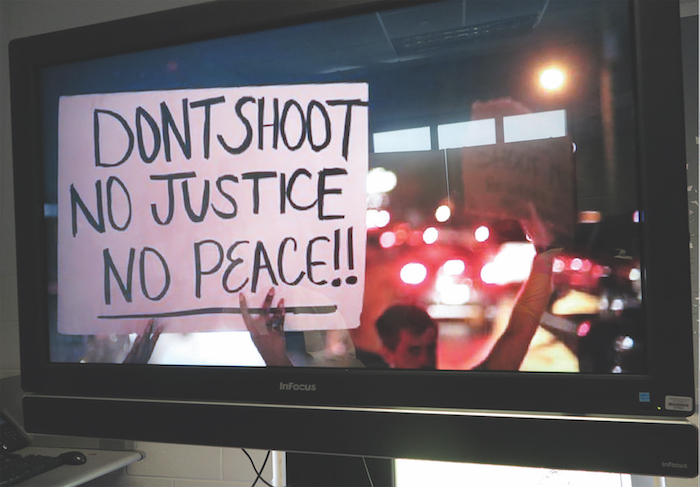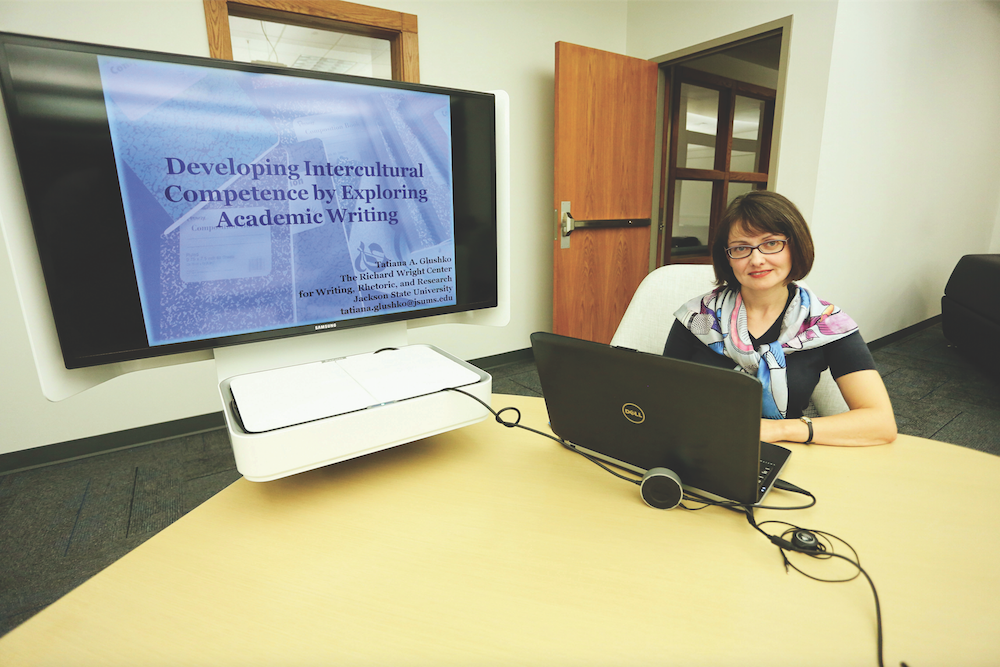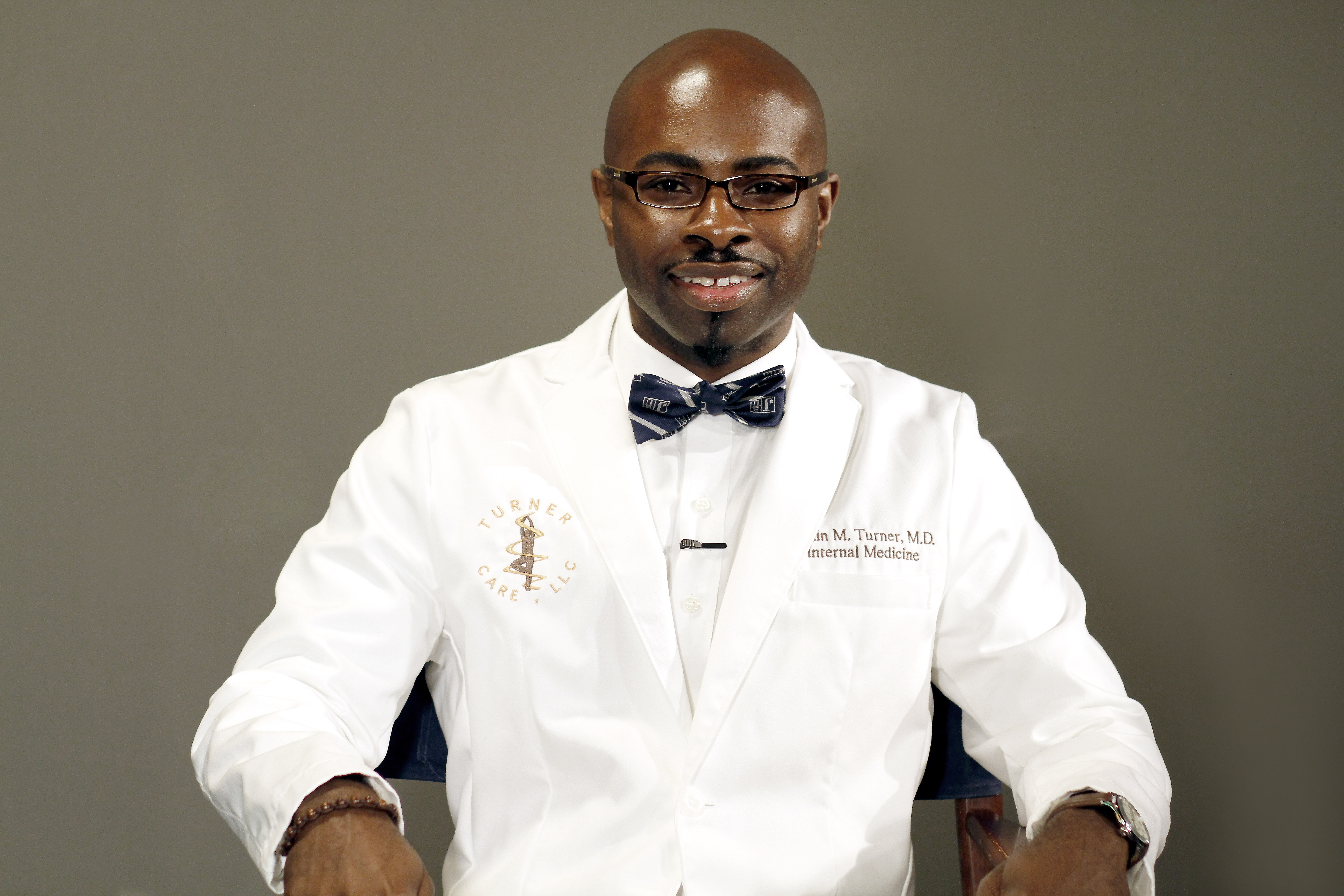
WRITING CENTER COORDINATOR USES BACKGROUND TO RAISE JSU’S INTERNATIONAL PROFILE
By Tammy Ramsdell
As a child growing up in the Soviet Union, Tatiana Glushko never would have dreamed that someday she would become Dr. Tatiana Glushko, coordinator of the Richard Wright Center for Writing, Rhetoric, and Research at Jackson State University.
She didn’t, after all, speak English.
But she distinctly recalls, as a 12-year-old, wanting to learn the language. “I didn’t have access to reading and writing (in English), but I was on a constant quest for knowledge.”
It was a quest that her mother supported. She got her daughter
books, and they started reading together.
“I was fascinated by the ability to speak another language,” Glushko says. Although traveling never entered her mind — she was, after all, living behind the Iron Curtain — she wanted to communicate with those who came to the Soviet Union, to “tell them about our country, the beautiful places and the historical landmarks.”
The opportunity for travel, albeit limited, would soon materialize, however. Her father, in the military, was transferred to Poland and then to what was East Germany.
“Moving at an early age, being exposed to different cultures,” she says,” sparked the possibility of ‘going places’ .”
Eventually her family returned to their home country. She ultimately became an English as a Foreign Language instructor at Amur State University in Blagoveshchensk. In 2004, she came to JSU as an exchange ESL instructor.
Two years later, Glushko, who holds a minor in Russian, entered JSU’s master’s program in English and started tutoring at the Richard Wright Center. She joined the staff in 2009. Last year, she earned a Ph.D. in urban higher education.
“I just came to Mississippi and never left,” she says. “This is home.”
Making it home, though, has been a process, by its very nature laden with insecurity and unfamiliarity.
Still, it provides a unique perspective when working with students.
“I know what it is like to feel different, to struggle to express thoughts,” she says. “It feels like walking with my head upside down … when you don’t own the language.”
Similar feelings, she says, apply not only to international students but to those from the U.S.
Learning to write in an academic setting, even with English as a native language, can seem every bit as foreign. “Both,” she says, “require an adjustment to a particular audience.”
Her background serves her well, too, in positioning JSU as an advocate of writing centers, a concept foreign to many countries, including Russia. In conjunction with a colleague from Russia, she recently offered a writing session, via Skype, at Amur State. Some 50 people, including diplomats, attended.
“In Russia,” she says, “it is difficult to express ideas without being attacked.”
It is her hope that in her native country, in fact in any country, people will embrace the value of writing and the freedom of expression that goes with it.
“We need to learn to negotiate our differences without destroying each other — to see differences as a good thing.”
on her bookshelf
So, what does a writing professional read?
Dr. Tatiana Glushko recommends The Black Russian by Vladimir Alexandrov
(2013, Grove Press).
It is the acclaimed biography of Frederick Bruce Thomas, the son of Mississippi slaves who became a millionaire impresario in Tsarist Moscow and “The Sultan of Jazz” in Constantinople.
A small world, indeed.









Leave a Reply